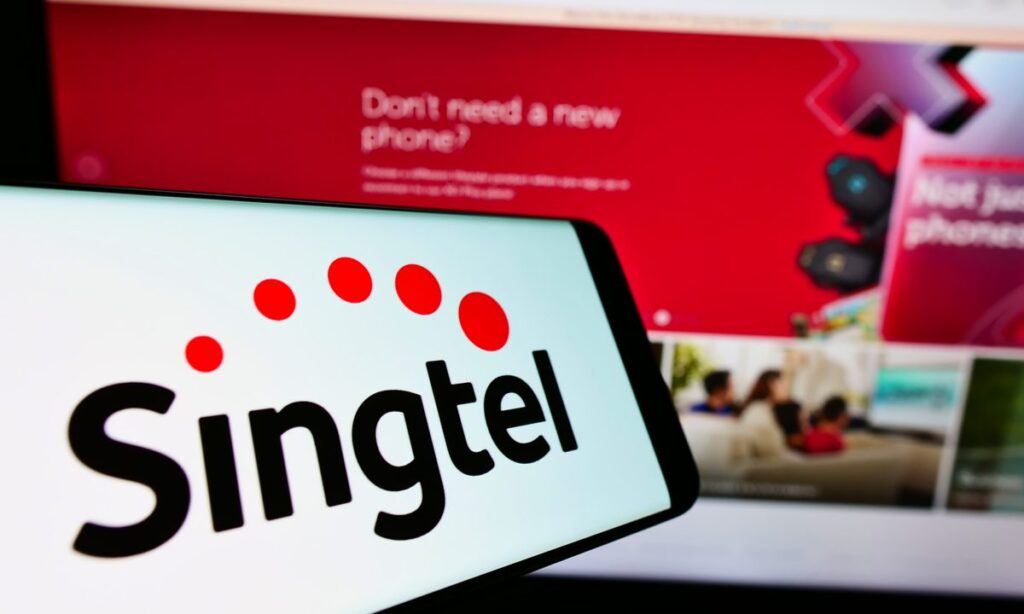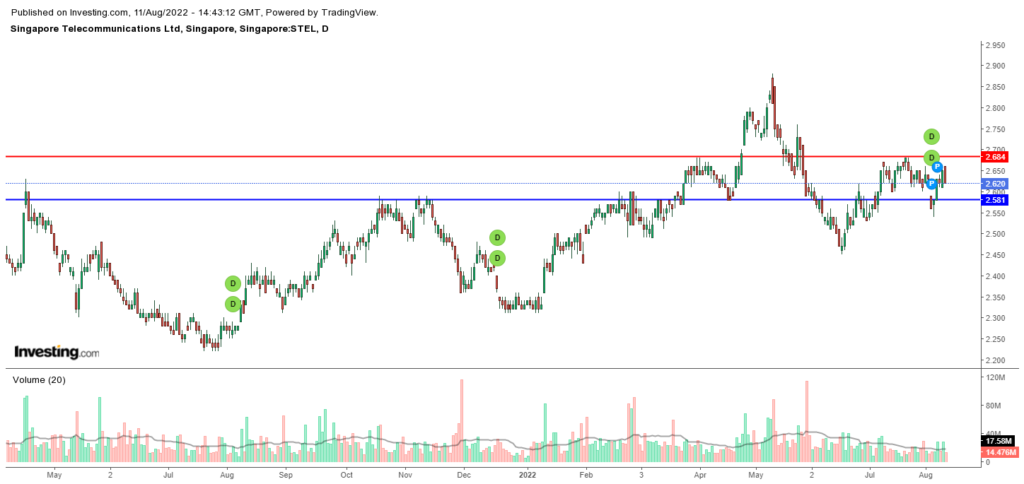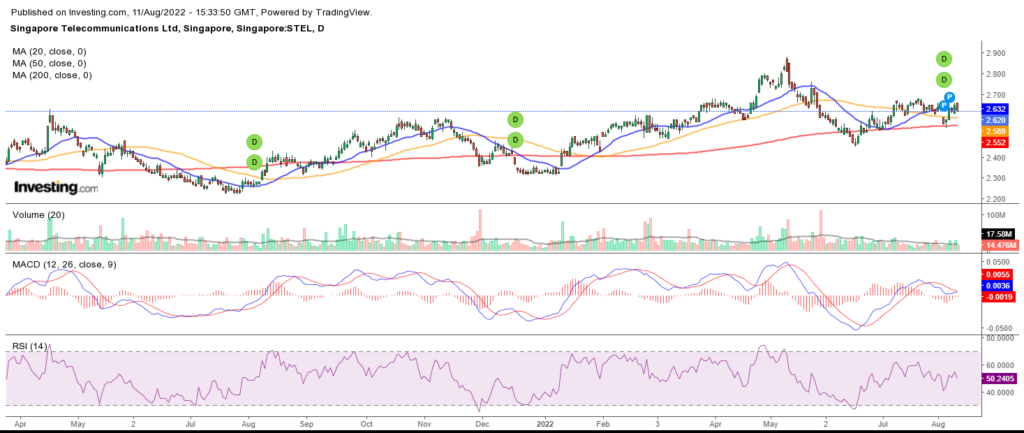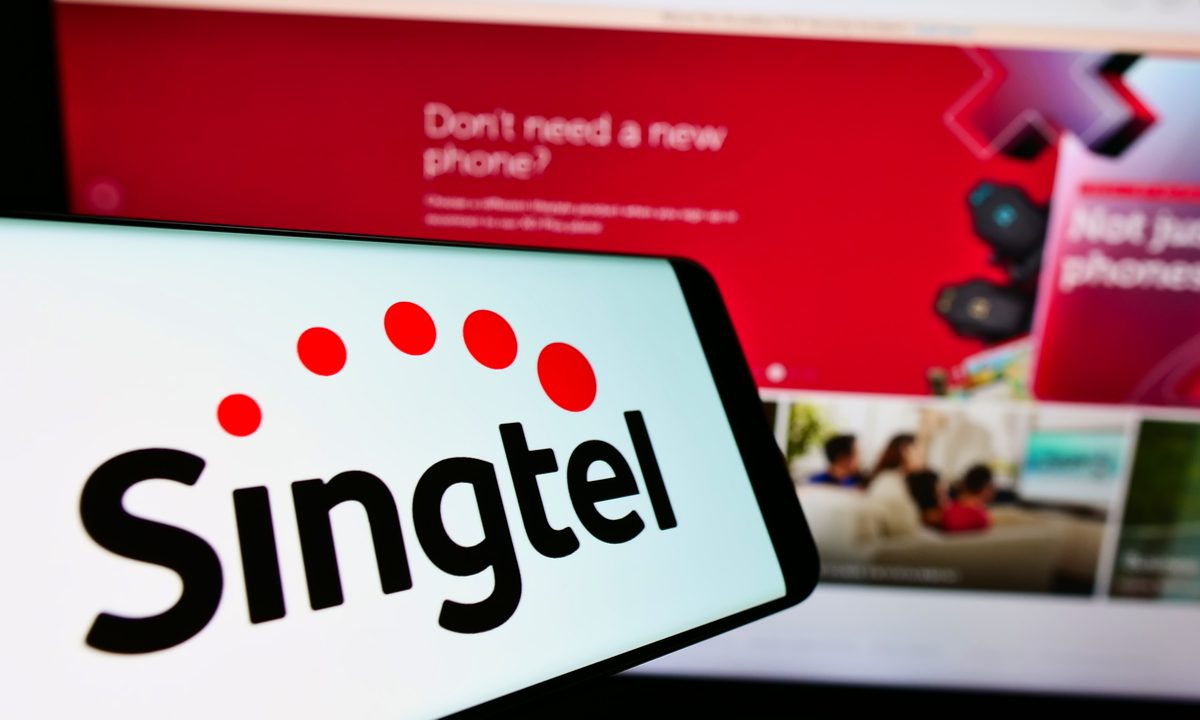
Singapore Telecommunications Limited (Singtel) has successfully accelerated the deployment of 5G despite the challenging environment caused by Covid-19. Does this company have potential to grow? What caused most of the analysts like this counter? Let us look into it together.
Background
Singapore Telecommunications Limited (Singtel) was founded on 28 Mar 1992, and is headquartered in Singapore. Singtel is Asia’s leading communications technology group, providing a portfolio of services from next generation communication, 5G and technology services to infotainment to both consumers and businesses.
The Group has presence in Asia, Australia and Africa and reaches over 750 million mobile customers in 21 countries. Its infrastructure and technology services for businesses span 21 countries, with more than 428 direct points of presence in 362 cities.
Business Model
Singtel operates through the following segments: Group Consumer, Group Enterprise, Group Digital Life, and Corporate.
The group delivers a complete and integrated suite of services, including mobile, broadband, as well as equipment sales. For businesses, Singtel offers a complementary array of workforce mobility solutions, data hosting, cloud, network infrastructure, professional consulting, analytics and cyber security capabilities.
Singtel posted a net profit of SGD 1.95bil for FY2022
Singtel’s net profit for the full year grew two and half times to SGD 1.95bil which was primarily due to a net exceptional gain from the group’s divestment of its 70% equity stake in Australia Tower Network compared to a net exceptional loss last year.
The group’s underlying net profit improved 11% to SGD 1.92bil, which was mainly lifted by Airtel’s resilient turnaround. Operating revenue fell 2% to SGD 15.34bil while EBITDA was also down 2% to SGD 3.77bil, reflecting lower National Broadband Network (NBN) migration revenue, the continued impact of Covid-19 and challenges in the carriage business. Excluding NBN migration revenue and Jobs Support Scheme (JSS) credits, operating revenue was stable, with EBITDA and EBIT growing 8% and 33% respectively, driven by strong growth in mobile service in Australia.
According to the Group CEO, Mr Yuen Kuan Moon, the improved of results underscore the group’s resilience in spite of the pandemic’s challenges and the uncertain macro-environment. Singtel’s mobile business in Australia and their regional associate Airtel capped the year with solid performances to deliver good results. The roaming revenues showed early signs of recovery with the return of business and leisure travel, and National Computer Systems (NCS) experiences a strong demand from the accelerated push by government and enterprises to digitalise. The management expect this momentum to continue into the new financial year.
The regional associates’ pre-tax profit contribution grew 21% to SGD 2.07bil. This was driven by Airtel’s double digit increased in the operating revenue and EBITDA as it staged a sturdy recovery in India and saw sustained growth in its African operations. While the regional associates were impacted by Covid-related movement restriction, Globe’s performance was further affected by Typhoon Odette in the Philippines, as well as an increase in depreciation and finance charges. AIS also faced higher depreciation and amortization charges from network and spectrum investments.
NCS’s investment in 4 IT and digital services companies in Australia allow Singtel to offer a compelling end-to-end digital transformation value proposition for customers in a market key to its expansion plans. The management will focus on scaling its business there and the group’s regional data centre platform will also support for further growth.
Financial Position
Singtel’s financial position remains solid. Net debt fell to SGD 10.1 billion, from SGD 12.4 billion a year ago, as cash and bank balances were boosted by cash inflows from divestments. Free cash flow for the year fell 9% to SGD 3.08 billion on lower operating cash flow attributable to working capital movements and higher tax payments, partially offset by higher dividends from associates.
Optus Consumer
Optus Consumer continued to make significant progress in delivering its strategy in spite of COVID-19 disruptions, equipment shortages and slow recovery of international travel. Excluding NBN migration revenue, operating revenue declined 3% but EBITDA rose 19% due to growth in mobile service. Mobile service revenue grew 7%, driven by higher postpaid revenue from the increased penetration of Optus Choice plans and a full year’s contribution from AMAYSIM (Australia provider of mobile phone plan). NBN migration revenue fell 78% from last year, as migrations near completion.
Singapore Consumer
Fixed broadband revenue grew strongly by 5%, driven by flexi-work arrangements, and the mobile segment saw signs of a nascent recovery as travel restrictions abated and 5G adoption increased. This was offset by a drop in equipment sales primarily due to a shortage of premium handsets and lower prepaid from the fall in the foreign worker population during the year. Through disciplined cost management, EBITDA excluding JSS credits was 1% higher.
Group Enterprise
ICT revenue saw a strong 5% growth, led by robust demand for data centre and cyber security services during the year despite the global chip shortage and COVID-19 restrictions. Mobile unified comms and SD-WAN revenue also grew, albeit offset by a decline in carriage revenue due to continued voice to data substitution. As a result, operating revenue declined 1% year-on-year. With lower operating revenue and higher mix of lower margin products and services, EBITDA fell 3%.
National Computer Systems (NCS)
NCS saw greater demand for digital services as both public and enterprise sectors accelerated their digital transformation. NCS-originated revenue was up a record 9% and EBITDA increased 4%, excluding JSS credits. Overall operating revenue was up 3% and EBITDA rose 1%, excluding JSS credits. NCS also successfully diversified its revenue streams, with Digital, Cloud, Platforms and Cyber revenue now contributing 49% of total operating revenue, up from 41% last year. With its global business exceeding SGD 100 million and bookings for the year of SGD 2.5 billion, NCS will continue to execute on strengthening its digital government and NEXT capabilities, expediting enterprise sector growth, and expanding beyond Singapore.
Dividend
The Board has proposed a final ordinary dividend of SGD 4.8 cents per share. Together with the interim dividend of SGD 4.5 cents per share, the ordinary dividends for the current financial year ended 31 March 2022 would be SGD 9.3 cents per share, totaling approximately SGD 1.5 billion. This represents a payout ratio of 80% of underlying net profit and a growth of 24% over the previous financial year.
Prospect
NCS, the Group’s ICT arm, will focus on integrating its recent new investments as part of its transformation into a digital and technology services firm in Asia Pacific. In addition, the expansion of Singtel’s regional data centre platform will provide further impetus for medium to long-term growth.
The Group expects dividends from the regional associates to be approximately SGD 1.1 billion and the Group’s capital expenditure to be around SGD 2.6 billion, comprising SGD 1.7 billion for Optus and SGD 0.9 billion for the rest of the Groups. This reflects the Group’s multi-year growth investments in 5G networks, data centres and satellites, as well as digital transformation initiatives to enhance customer experience and efficiency.
Singtel has blanketed 95% of outdoor locations with 5G signals, three years ahead of the target set by the local authorities, paving the way for a future of driverless vehicles, on the go cloud gaming, and robot run factories and ports.
SingTel announced the divestment of its digital advertising business for an enterprise value of SGD 239mil. The asset was earlier classified as a subsidiary held for sale. Amobee has been mired in losses with an EBIT loss of SGD 70mil in FY2022 (FY2021: – SGD 82mil), having been impacted by the weak ad spending and the pandemic.
Singtel’s joint company Bharti Airtel (Bharti Airtel) bid for India’s 5G telecommunications network spectrum for 430.8 billion rupees (about SGD 7.5 billion), and plans to provide 5G network services throughout the country. The company bid for 19,800-megahertz (MHz) spectrum resources in the 3.5 GHz (GHz) and 26 GHz spectrum segments issued by the Ministry of Telecommunications of India, with a service period of 20 years. With this large amount of spectrum, the company does not need to spend a lot of money on the purchase of spectrum for many years to come, and the spectrum usage fee can be significantly reduced.
In addition, compared with new entrants, this spectrum acquisition enables Airtel to significantly reduce spectrum usage fee (SUC) expenditures and eliminate unfavorable SUC arbitrage. At the same time, Singtel’s Indonesian partner PT Telekomunikasi Selular (Telkomsel) will sell another 6,000 telecom towers to PT Dayamitra Telekomunikasi (Mitratel).
Fundamental Analysis
Market Cap: SGD 43.25bil
Number of Shares: 16.51bil
PE Ratio: 22.45x
EPS (SGD): 0.118
Dividend Yield: 3.51%
Return on Equity: 7.2%
Net Earnings Growth: 251.9%
Technical Analysis

As of 11 Aug 2022
Resistance Level: SGD 2.684
Support Level: SGD 2.581
Current Share Price: SGD 2.62
Assuming that if the share price of Singtel can break through the price of SGD 2.684, it will turn into a bullish trend. In addition, most of the analysts continue to be optimistic on this company, which was mainly due to Singtel has made a move to sell the Amobee (company suffered a loss), indicating that the company’s profitability will be revised in the future.
According to Sky News, Amobee might be sold to London-Listed adtech firm Tremor for an estimated GBP165mil (SGD280mil). Amobee has been largely loss-making (SGD70mil in EBIT loss in FY2022). Furthermore, as Amobee is in advance stage of sale, Amobee might be classified as a subsidiary that is “held for sale” from 1QFY2023 onwards. Therefore, its revenue and earnings will not be captured from FY2023 onwards in Singtel’s reported profit.

Currently, Singtel is in a bullish trend as its MACD crossover to go up. The current RSI was stood at 50.2 points, indicating that the investors / traders are buying the assets, which caused the stock price to rise. Assuming that the stock price can stand firmly on the MA20 line, the stock price will rise in the short-term. However, the company’s stock price stands firmly above the MA50 and MA200 lines, indicating that the stock price will be in an uptrend in the mid-term and long-term.
![]() Please like and follow our FB page to get more updates from us. Thank you.
Please like and follow our FB page to get more updates from us. Thank you. ![]()
![]() 𝐃𝐢𝐬𝐜𝐥𝐚𝐢𝐦𝐞𝐫:
𝐃𝐢𝐬𝐜𝐥𝐚𝐢𝐦𝐞𝐫:
The research, information and opinion expressed in this article / video are purely for information and educational purpose only and should not be construed as investment advice. We will not be liable for any losses or damages suffered from your investment decisions. Kindly consult a licensed investment advisor if you wish to get any investment advice.
![]() Open a Stock / Futures trading account in Malaysia: https://bit.ly/3dX157y
Open a Stock / Futures trading account in Malaysia: https://bit.ly/3dX157y





More articles…
